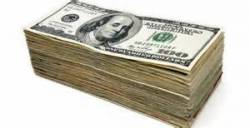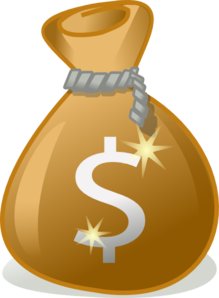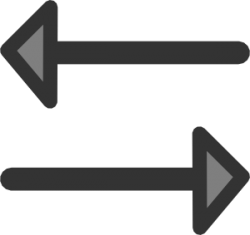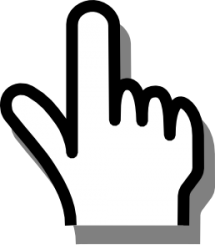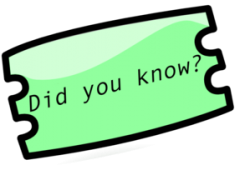Trading Educators Blog
There are so many different instruments to trade like stocks, bonds, futures, spot forex, options and so on. And even when you decide to get into futures, there are tons of futures out there! So where to even start? I was as confused as anyone else about this when I started trading. That's why it probably feels good to focus on just one market in the beginning. "I just trade the EUR/USD" or "I onl...
Being a contrarian trader means not just following the crowd. It means being willing to break the rules when necessary! Statistics show that the “crowd” loses close to 80% of the time position trading, and very close to 90% of the time day trading. Why would anyone want to do what all those people are doing? So, what is it the crowd is doing? For the most part they are struggling with ...
Recently I heard another tale of woe involving the failure to admit being wrong. This man followed a familiar path. As a day trader in the E-mini S&P 500, he first contacted me to tell me that he was unhappy with the data he was receiving. He wanted to know if I could recommend a good trading program for him. I mentioned a couple of them to him and he decided on one. Another interval of time w...
Consider the following: As a trader you are in a business. Your strongest opponent has plenty of capital. He follows a program and he does it without emotion. He is totally aware of the fact that no one knows where the next tick will fall. Whereas he usually has good insights regarding the major forces that drive the market, he does not fool himself into thinking he can explain the vagrancies of p...
Overtrading is putting on trades unnecessarily, arbitrarily, and without a specific trading plan. Overtrading can also be trading with more risk than you can afford, and trading more contracts than you can effectively manage physically, mentally, and emotionally. Mistake #1: Assuming a real trader trades all day. Mistake #2: Trading for excitement. Mistake #3: Trading because you are frustrated. M...
Dear Joe, Sometimes I absolutely dread sitting down to trade. I have had so many bad experiences that I’m not sure I can pull the trigger. Is there anything I can do about it? What happens to us as we trade colors the way we see things in the market and influences the way we approach them. We take a big hit in a particular market, and we decide never to trade there again. Or, when we have a great ...
Three psychological traits prevent traders from becoming consistently successful, fear, anger and guilt. Fear blocks the trade decision making process due to worry about negative events that may or may not occur in the future. Guilt blocks the trade decision making process with unresolved concern about something that happened in the past. Anger is an emotional response to guilt, fear, the indecisi...
Master Traders develop a style that is a reflection of their education and character. Most individual trading styles are either positional or combinational and, rarely, a synthesis of both. However, there are other styles. Positional traders take x amount of positions within a specific price area where the market is thought to be favorable to their trading strategy. This may occur on short t...
From a longtime friend and student: "I thought that I’d pass on something that you might want to share with your trading community. I spent way too long thinking that range bars and/or tick bars were my way to the holy grail and I would like to tell you what I realized and why I think I was wrong." "First some background: I got started down that path, because wasn’t seeing format...
The spread is defined as buying one futures contract, and selling a different, but related futures contract. Specifically, when trading the crush spread, you would buy soybeans and sell its respective products, the soybean meal and soybean oil. This is what is referred to as being crushed. If you buy the soybean meal or the soybean oil and sells soybeans, that is what is referred to as being rever...
Day trading has always been a tough game, requiring a very strong psyche, discipline and a high level of trading skills to succeed in. Nowadays though it's even harder due to the stronger competition, not only by humans but especially by computers trading at a speed a human trader simply can not match up to. High-Frequency Trading is happening in literally all of the popular markets out ther...
How should you feel about losses? I once read somewhere that you are supposed to love losses. Does that make sense to you? It doesn't to me. The worst aspect of losing is that it tends to create pessimism. Traders should feel bad when they lose money only if they fought the market trend, or violated their own trading strategies. The best traders have a healthy "so what, big deal!" attitude that ma...
Once a trade is entered, there are two possible outcomes: Win or lose. Between the two is the breakeven point, and because it is in-between, it’s psychologically significant. Losing is involved with fear and hope. Winning is involved with greed. When on the losing side of a trade, the breakeven point is a place that inspires hope. Being human we have a natural tendency to avoid risk and loss...
Taking a second look at potential trades at times results in “why didn’t I see this before?” For instance, what if you are looking at a market as it approaches a support area? Isn’t it reasonable to ask yourself, “If this market breaks through and I am long, what will I do?” Ask yourself how such an event would change the picture. If you have a position, will you still want...
Money management involves a number of things and it is not to be confused with trade management. Money management is static. It deals with things like deciding the size of your margin account; deciding how much of your account you will put at risk on any one trade; deciding where to place your stop; and deciding on fixed objectives. The main purpose of money management is to save you from a disast...
I was asked the following question: “Joe, is it important to be creative in your trading?” I’m not sure I can describe it in terms of importance. The creative process is somewhat of a mystery, even to scientists who study it, but that is only because scientists do not recognize the spiritual factors of our lives and consequently in our trading. The Bible says: “There is a spirit in man.”&nbs...
Careful analysis of all possible alternatives and all possible consequences of your trading decisions is the first step in good decision-making. Make every attempt to avoid impulsive trading decisions, invariably these lead to taking unnecessary risks. Strive to have a clearly defined trading plan, but keep it as simple as possible. Chart the equity of your trading method so that you can quickly k...
When you are in a slump and feeling frustrated and disappointed, you tend to think, "I'll never be profitable, and there is nothing I can do about it." The consequences of such reasoning are that you'll never feel like putting on a trade ever again. It is better to think, "Profitable trading is almost impossible, but I can learn how the markets work, develop the necessary skills, and eventually ac...
I came across a very good article from the "Sovereign Man by Simon Black" - Please send this on to family and friends! "A few days ago the following information was put out by a finance professor at Columbia University in New York City who has been doing a deep dive on the financial management industry. ""His results were pretty concerning.""One of the things that he said was that fund mana...
For the most part, trader’s stops are based on money, ticks, pips or some percentage of their trading account. All of these are money management stops. In this respect, the level selected for the stop should take into consideration your risk tolerance. However, very few traders use time stops in addition to money management stops. Time stops are trade management stops. Using a time stop is quite s...









